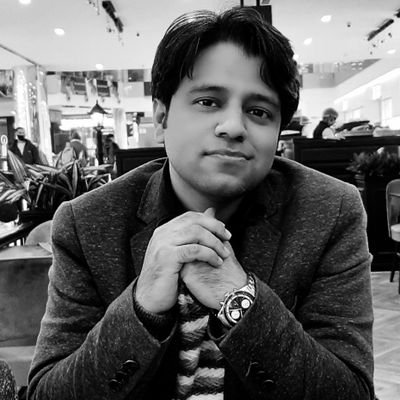.webp)
 Saquib Salim
Saquib Salim
Did you know that the Indian tricolour was raised on European soil at an International sporting event on 15 August, 11 years before India gained freedom? It was at the final of the Hockey title at the 1936 Olympics in Berlin. The men who raised the national flag (Congress Party’s flag) were led by Dhyan Chand in the final against Germany.
National Sports Day
We often tend to take Dhyan Chand as just a sportsperson like Donald Bradman, Mohammad Ali, K. A. Jabbar, or Sachin Tendulkar. We do not appreciate the hurdles Dhyan Chand overcame to inspire a colonised nation to become a World Champion.
The Indian Hockey team had already won Olympic Gold Medals at Amsterdam and Los Angeles in 1928 and 1932, respectively. However, in these events, it participated as a colony (of the British). In Berlin, the team used its 'national' flag. This was inspired by nationalist aspirations spoken of by Sir Dorabji Tata and several princes and politicians. Through this move, India was asserting its national status. Indeed, what better place to lay its claim as a nationality than an international sporting event?
If Tata dreamt and Maharaja of Patiala, Mysore, Nizam, Begum of Bhopal, and others funded it, it was sheer guts and genius of Dhyan Chand to have realised this dream at Berlin.
India, a British colony, won Gold medals at the Olympics. No, they did not win. India owned the game. Against all the odds, they played for national pride and imperiously defeated every European nation at their own game.
Dhyan Chand was not made a captain till 1936. Those were the times when class mattered the most, and a man with modest rank in the army could not aspire to be a captain. He was selected for the Olympics in 1928 and 1932 only because he was the best. He broke the glass ceiling by captaining the side in 1936.
The team was taken to Hitler’s Germany. Their hearts were full of national pride. The world needed to know that India existed and was not inferior in any sense. Dhyan Chand later wrote, “When we used to travel, the name of our country and the game were the only two things that mattered….. There is a tendency on the part of our young players to care more for creature comforts than rendering high duty to our nation. I want to tell my young friends that if India is to attain the level of other nations in the world, one must sacrifice to a large extent personal comforts and shake off snobbery….. The name of the country and the game must be the goal, and everything else subordinate.”
The journey to Berlin was not a comfortable one, as the Indian squad was tight on budget. They travelled in third class, could not buy tickets for sleepers in trains, and skipped meals during the journey. Yet, they wanted to conquer the World because a nation, a poor colonised nation of millions, was behind them.
When the National Anthem of Germany was played at the opening ceremony, M. N. Masood, one of the team members, wrote, “India rose before our imagination, her poor begging for bread, her unemployed struggling for existence, and her rich carefree of everything except themselves. Somehow the spring of our national feelings was touched, and the unity and solidarity of the people in the Stadium made us look with shame and regret at our poverty, destitution, and discord.”
The Indian nation was not only buried in their hearts. They were ready to rebel. Boria Majumdar writes, “The Indians were the only contingent, apart from the Americans, to not perform the raised-arm salute as a mark of respect for the German Chancellor (Hitler).” The squad challenged the foreign policy of the British Government as well as the government where they were standing at the time. The reason, in all probability, was the Gandhi-led Congress’s attitude towards Nazism and Fascism in 1936.
In the opinion of Majumdar, “.... the Indian decision not to salute Hitler was a grand gesture of defiance, totally in sync with the tenets of the dominant stream of Indian nationalism and the Congress Party.”
Dhyan Chand was leading a truly national team from a colony. A team that was playing for national pride. They did not have money. They did not have equipment. They were nobodies. But they were the hope. Dhyan Chand was the hope.
Raju Mukherji recorded Dhyan Chand recalling, “Before the Olympic final against Germany in 1936, we were a little nervous having lost to them in a friendly match before the Olympics. But our manager, Pankaj Gupta, suddenly produced a Congress tricolor and told us that this was not a match but a fight for India's independence. The players comprising Christians, Hindus, Sikhs, and Muslims became highly motivated. We saluted the flag, prayed, and went out to fight for our motherland.”
The Indians from different parts of Europe and India turned up to witness the final. Rulers of Baroda and Bhopal were among them. All eyes were on Dhyan Chand. The man led from the front and “discarded his spiked shoes and stockings and played with bare legs and rubber soles and became speedier in the second half.”
India won 8-1 and stamped its supremacy in Hockey. Dhyan Chand was now a wizard. India was being recognised on an international stage before gaining independence.
ALSO READ :Lalbaugcha Raja's ornate grand curtain, foot cushion made by Muslim artisans
Today, the birthday of Dhyan Chand is celebrated as the National Sports Day, which is the least homage this nation can pay to this great nationalist.
